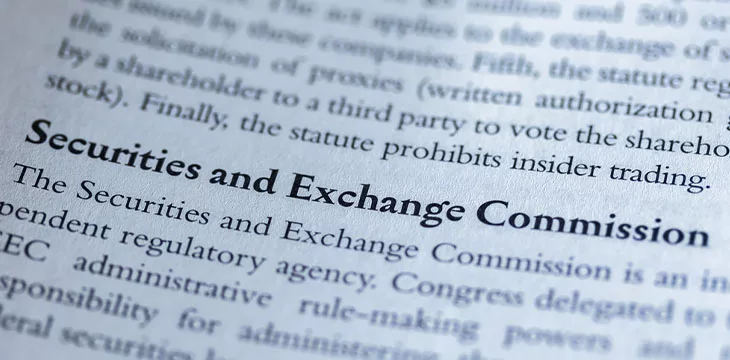|
Getting your Trinity Audio player ready...
|
The top U.S. securities watchdog has filed its first-ever securities violation lawsuit against a firm for offering unregistered non-fungible tokens (NFTs).
The U.S. Securities and Exchange Commission (SEC) alleges that Los Angeles-based Impact Theory conducted an illegal offering in which it sold NFTs worth $30 million in 2021.
Today we charged Impact Theory LLC, a media and entertainment company headquartered in Los Angeles, with conducting an unregistered offering of crypto asset securities in the form of purported NFTs. Impact Theory raised approximately $30 million from hundreds of investors.
— U.S. Securities and Exchange Commission (@SECGov) August 28, 2023
Impact Theory allegedly grouped its “Founder’s Keys” NFTs into three tiers: Legendary, Heroic, and Relentless. It sold close to 14,000 NFTs from October 13, 2021, to December 6, 2021, raising $29.9 million worth of Ether from hundreds of investors in the U.S. and beyond.
The entertainment and media company purportedly claimed in its marketing materials that it would deliver tremendous value to the NFT owners. It also claimed it would use the funds raised to develop the ecosystem by increasing headcount and creating more projects.
In one live event, an official from the company stated, “Our goal is to make sure that as Impact Theory is enriched, as [its founders] are enriched, as our team here at Impact Theory is enriched, that you guys also are enriched. And so that is why we are so aggressively behind NFTs.”
This and other statements led the investors to believe that by purchasing the NFTs, they were investing in the company, SEC says.
The watchdog said the company violated the Securities Act and ordered it to pay $6.1 million in disgorgement of ill gained profits, prejudgment interest, and civil penalties, an order Impact Theory agreed to without admitting or denying the charges.
Additionally, the founders undertook to destroy all the NFTs in their possession within ten days and revise smart contracts that they programmed to give them a cut for every sale of the NFTs on the secondary market.
SEC says it considered some of the acts the company undertook to remedy the damage it caused. This includes spending $7.7 million to buy back nearly 3,000 NFTs on the secondary market.
“Absent a valid exemption, offerings of securities, in whatever form, must be registered. Without registration, investors of all types are deprived of the protections afforded them by the robust disclosures and other safeguards long provided by our securities laws,” commented Antonia Apps, the New York Regional Office Director at the SEC.
Two SEC commissioners—Hester Peirce and Mark Uyeda—disagreed with the ruling. In a statement, they said the action leaves the commission with more challenging questions about NFTs.
Are NFTs securities?
The SEC order against Impact Theory is its first securities violation action against an NFT issuer. It could set a precedent for how the U.S. regulators and judicial system handle the asset class.
NFTs have been embroiled in a few lawsuits in the U.S., but no case has been concluded so far. A class-action lawsuit against Dapper Labs, the company behind Crypto Kitties and NBA Top Shot NFT collections, is the most high-profile.
Investors in its Moments NFTs accused the company of selling unregistered securities. In its defense, the company called for the dismissal of the lawsuit, arguing that if basketball, baseball, and Pokémon cards are not securities, neither are NFTs.
However, a New York judge ruled against Dapper earlier this year and ordered the lawsuit to proceed. He noted that the value of baseball cards, unlike NFTs, doesn’t rely on the producers. In Dapper’s case, the company developed and managed the blockchain on which the NFTs were deployed.
CoinGeek Conversations with Victor Tang: Making NFTs more nifty

 03-03-2026
03-03-2026 




